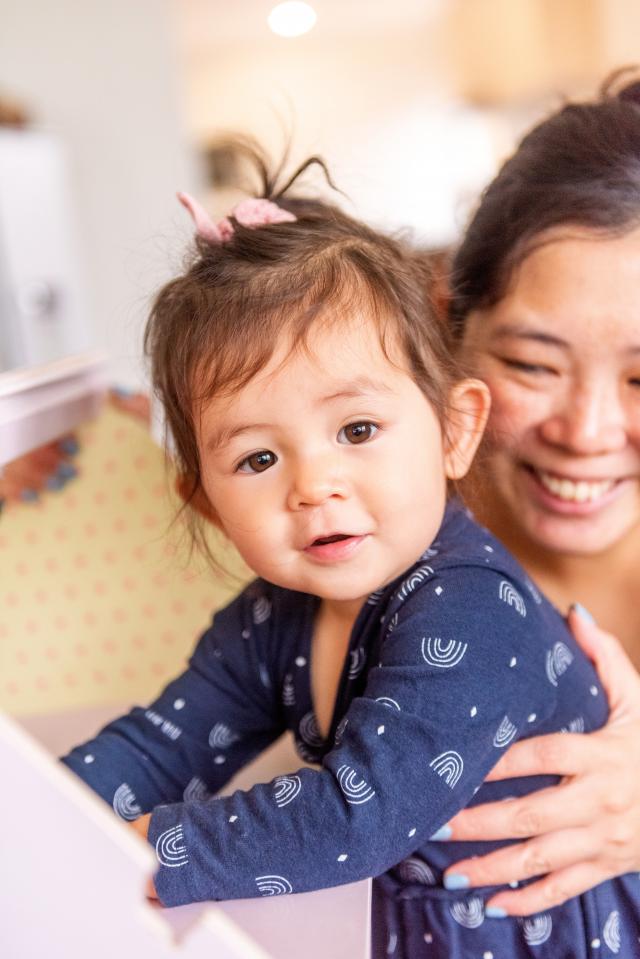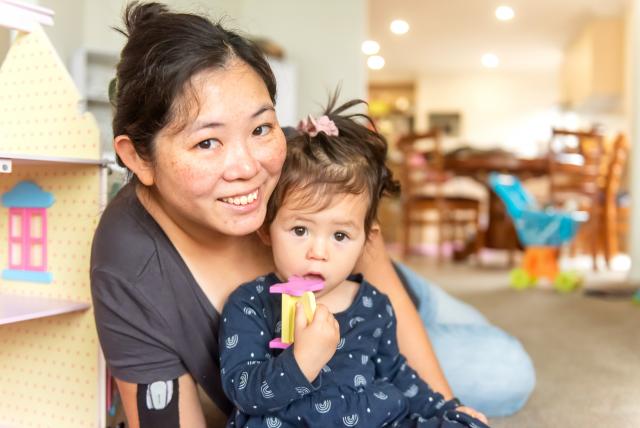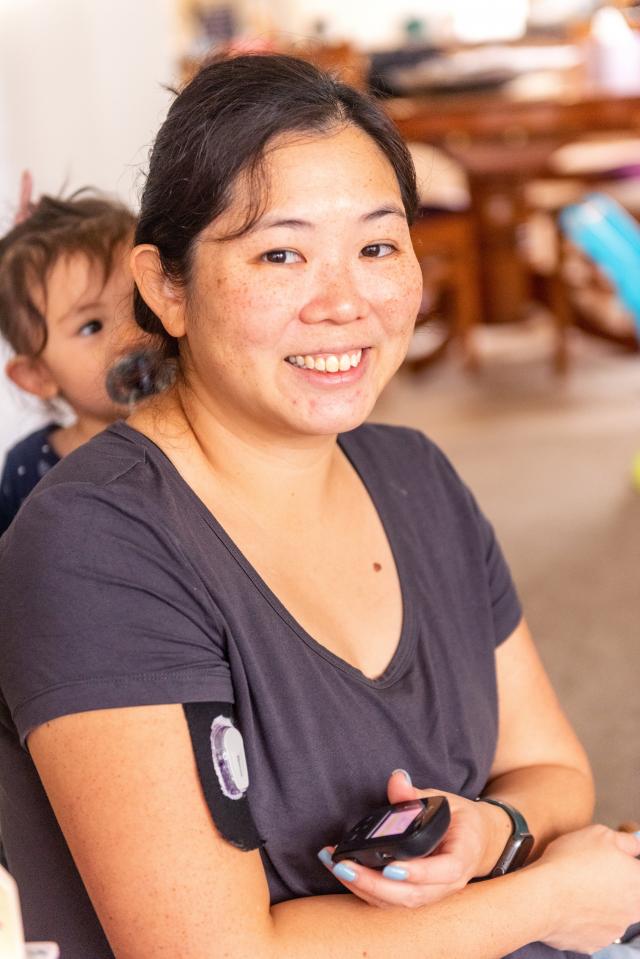By Casey Neill
Fears and concerns are often front of mind during pregnancy.
For most, diabetes doesn’t need to be one of them, but it topped the list for Cranbourne mum Ashley Ng.
“We tried as much as we could to plan things ahead so we wouldn’t have any unexpected surprises,” the type one diabetic said.
“It was one of my biggest worries: how was diabetes going to play out.”
Everyone labelled her daughter, who was 15 months old when we spoke in March, a ‘lockdown baby’.
“But it was planned, in that we’d got married, got a house, and the next logical step was to have kids,” she said.
“I knew my biological clock was ticking, especially with a chronic condition like diabetes.”
Ashley and her husband conceived within a couple of months.
“It wasn’t a surprise, but it was also a surprise and an ‘oh crap’ moment – this is actually happening,” she laughed.
She’d woken at 4am to use the toilet, so decided to take a test.
She climbed back into bed and lay awake for the next two hours, before getting up to double check those two blue lines had really appeared.
“That’s when I woke my husband up,” she said.
“It’s such a mixed bag of emotions.”
Ashley’s diabetes is atypical, so no one could tell her how pregnancy was going to affect the condition or vice versa.
But she had the support of a health care team, including a referral to a specialist.
“Being an automatic high-risk pregnancy sounds daunting, but it was comforting that extra things were put in place to make sure things were going well,” she said.
“It was a really good safety net for me.
“My first pregnancy was actually really chilled because we were in lockdown most of the time.
“I was working from home. There was no pressure to go anywhere or be super busy.
“So I think that was a blessing in disguise.”
Ashley also counted herself lucky to be “in this generation of women who have access to tech and devices that can help monitor my blood sugars more closely”.
During pregnancy, she was adjusting to physical and hormonal changes while also managing her food intake.
“Food is the main contributor to fluctuating blood sugars – it was always at the forefront of my mind,” Ashley said.
“At the start it was actually quite nice. In the first trimester when everything’s growing and developing, that’s when we often get low blood sugars.
“I could think ‘I’m going to have that ice cream’ and I wouldn’t have to worry so much.
“I think post-pregnancy was probably where I struggled most.
“When you’re trying to breastfeed, it sucks the energy out of you.
“You can see your blood sugars plummeting as you’re breastfeeding.”
Fellow mums with diabetes told Ashley to have snacks on hand and to always sit somewhere low while feeding in case she passed out.Her mum made her a caddy packed with snacks, wipes and nappies to carry around the house.
Adding to the challenge, her daughter was born with a tongue tie and struggled to latch.
“Breastfeeding was really painful. I wasn’t sure if I was doing something wrong,” Ashley said.
“I ended up exclusively pumping for a little bit because I found it way easier.
“There was a lot of pressure from everyone in terms of ‘you really should be just breastfeeding off the boob rather than using a machine’.
“I ended up getting mastitis a couple of weeks in. Even the GP said breastfeeding could help with the clog.
“I chose one day when I was in an OK mood and pushed through it.Something just clicked for both of us, and we just got it.”
Ashley’s second daughter is due in June. She’ll speak to a midwife for advice on preparing for a smoother breastfeeding journey.
“A part of me is still really nervous. That is probably the biggest thing I’m nervous about,” she said.
Juggling work has also been a challenge, especially when Covid restrictions closed childcare centres.
“I was keen to go back to work, but I really struggled in terms of trying to balance it all,” she said.
“You’re expected to work like you don’t have a kid.
“You have two jobs.”
And both cause guilt. That built up recently when her husband had to work extra hours.
“It broke me. I had to make an appointment with the GP and make a mental health care plan,” Ashley said.
“The GP said ‘you need to start to let things go, understand that pre-baby you were a high achiever, you were probably a perfectionist, you did a lot of things with your life, but now priorities have changed’.
“It’s about adjusting your expectations.
“But I really don’t want to adjust my expectations. I want to be able to do it all.
“A few friends said to me ‘being able to do everything is a myth, there’s a time and place for everything’.
“Sometimes you have to pause things and come back to them.”










